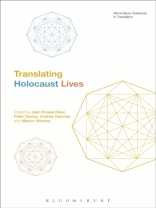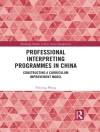For readers in the English-speaking world, almost all Holocaust writing is translated writing. Translation is indispensable for our understanding of the Holocaust because there is a need to tell others what happened in a way that makes events and experiences accessible – if not, perhaps, comprehensible – to other communities.
Yet what this means is only beginning to be explored by Translation Studies scholars. This book aims to bring together the insights of Translation Studies and Holocaust Studies in order to show what a critical understanding of translation in practice and context can contribute to our knowledge of the legacy of the Holocaust.
The role translation plays is not just as a facilitator of a semi-transparent transfer of information. Holocaust writing involves questions about language, truth and ethics, and a theoretically informed understanding of translation adds to these questions by drawing attention to processes of mediation and reception in cultural and historical context. It is important to examine how writing by Holocaust victims, which is closely tied to a specific language and reflects on the relationship between language, experience and thought, can (or cannot) be translated.
This volume brings the disciplines of Holocaust and Translation Studies into an encounter with each other in order to explore the effects of translation on Holocaust writing. The individual pieces by Holocaust scholars explore general, theoretical questions and individual case studies, and are accompanied by commentaries by translation scholars.
Dr Jean Boase-Beier & Dr Peter Davies
Translating Holocaust Lives [PDF ebook]
Translating Holocaust Lives [PDF ebook]
Mua cuốn sách điện tử này và nhận thêm 1 cuốn MIỄN PHÍ!
định dạng PDF ● Trang 264 ● ISBN 9781474250306 ● Biên tập viên Dr Jean Boase-Beier & Dr Peter Davies ● Nhà xuất bản Bloomsbury Publishing ● Được phát hành 2017 ● Có thể tải xuống 3 lần ● Tiền tệ EUR ● TÔI 5031221 ● Sao chép bảo vệ Adobe DRM
Yêu cầu trình đọc ebook có khả năng DRM












